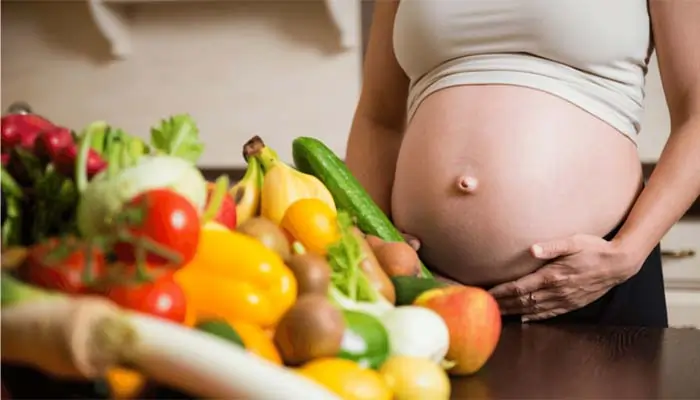Advertisement
Meal Planning Tips for a Healthy Pregnancy Diet
Meal planning can be a helpful tool for ensuring that you’re meeting your nutritional needs during pregnancy. Here are some tips to help you create balanced and nutritious meals throughout the day:
Start Your Day with a Nutritious Breakfast
Breakfast is an important meal that provides the energy you need to start your day. A balanced breakfast should include a combination of complex carbohydrates, protein, and healthy fats.
- Examples: Whole-grain oatmeal topped with fresh berries and nuts; a smoothie made with spinach, banana, Greek yogurt, and chia seeds; or a whole-grain toast with avocado and a poached egg.
Focus on Balanced Meals and Snacks
Each meal should include a balance of macronutrients (carbohydrates, protein, and fats) and a variety of micronutrients (vitamins and minerals). Aim to include a source of protein, a healthy fat, and a fiber-rich carbohydrate in each meal.
- Examples: Grilled chicken with quinoa and roasted vegetables; a salad with mixed greens, chickpeas, avocado, and a drizzle of olive oil; or a stir-fry with tofu, brown rice, and colorful bell peppers.
Incorporate Nutrient-Dense Snacks
Healthy snacks can help you meet your increased calorie and nutrient needs during pregnancy. Choose snacks that provide essential nutrients and sustained energy.
- Examples: Greek yogurt with honey and almonds; sliced apple with peanut butter; or carrot sticks with hummus.
Stay Hydrated
Proper hydration is essential during pregnancy, as it supports the increased blood volume and helps transport nutrients to the baby. Water is the best choice for staying hydrated, but you can also include other fluids like herbal teas, milk, and 100% fruit juice in moderation.
- Tip: Carry a reusable water bottle with you to remind yourself to drink throughout the day. Aim for at least 8-10 cups of fluids daily, or more if you’re physically active or in a hot climate.
Listen to Your Body
Your appetite may fluctuate during pregnancy, so it’s important to listen to your body’s hunger and fullness cues. Eat when you’re hungry, and don’t feel pressured to eat large portions if you’re not feeling up to it. Small, frequent meals may be more manageable, especially if you’re experiencing nausea or heartburn.










